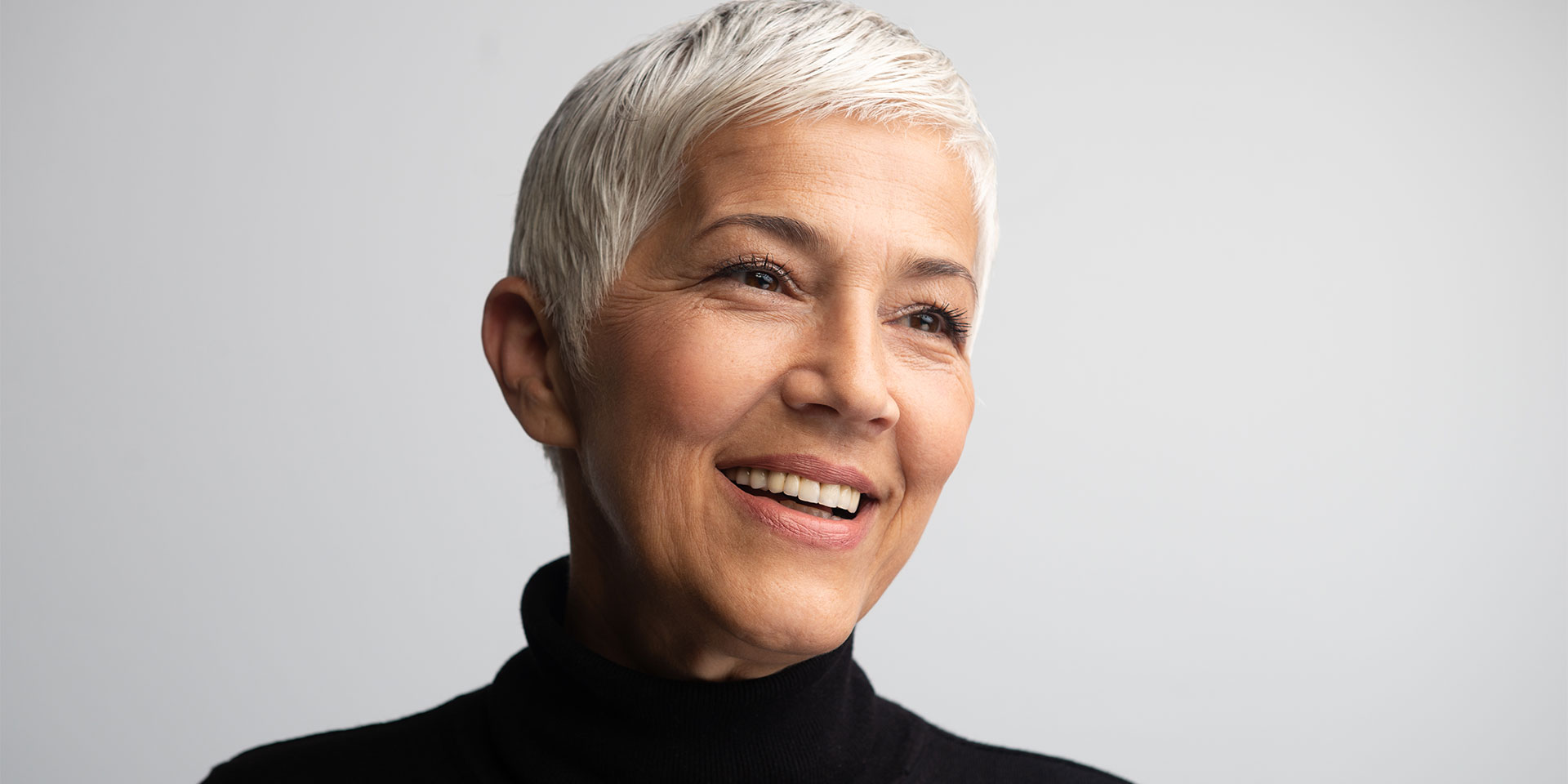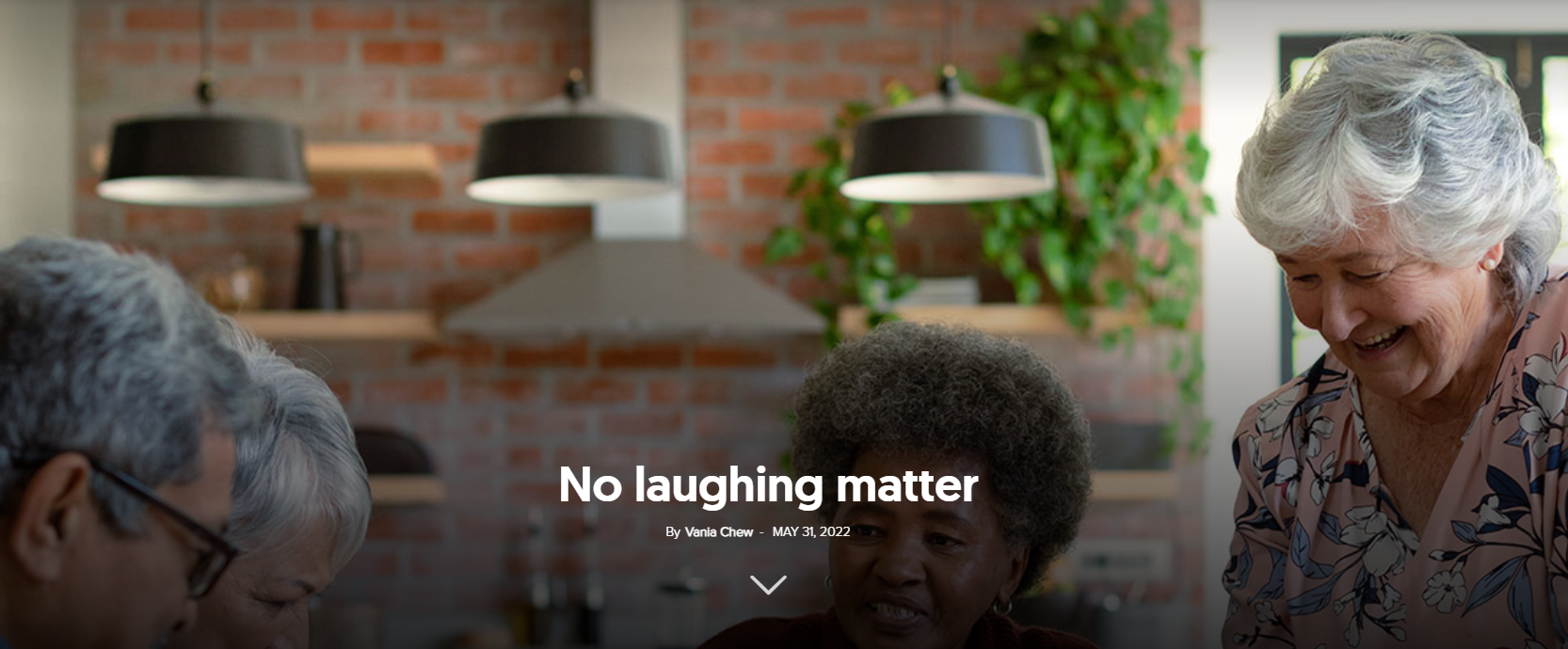An old saying states: “If youth knew; if age could”. This truth is reflected by countless studies showing that lifestyle adjustments made in middle age (or even earlier) favour a transition to a healthier old age.
The essayist Sever Voinescu, in a book that explores how we choose to age, talks about the experience of a couple of intellectual septuagenarians, who were trying an unusual method of combating old age. In the year they turned 60, they decided to learn a foreign language together every year.
The learning process was meticulous and the couple used textbooks, study books, did exercises, and even turned to teachers for help, to make sure they studied the new language correctly. At the end of each year, they stopped learning that language and went on to learn a new one, following a very precise schedule already ahead (the Romanian language, for example, was scheduled for the sixth year, they happily communicated to the essayist, after finding out that he is Romanian).
Experts have already found that learning a foreign language plays an important role in preventing cognitive decline, but this is just one way to slow down ageing. We begin to age long before the signs of decline become visible, and the speed with which these signs appear in middle age is a valuable indication of the degree of health and independence we will experience in our last years of life.
We all age, but not at the same pace
The identification and treatment of diseases specific to old age should begin early, from the age of 45, suggests a recent study by researchers at Duke University. The researchers analysed the speed with which more than 1,000 New Zealanders born in the same year were ageing, using data from the Dunedin Longitudinal Study, which has been running for about five decades.
The ageing rate of the study participants was measured (at the ages of 26, 32, 38, and 45) based on 19 biomarkers, which assess the cardiovascular, renal, immune, metabolic, and pulmonary systems. At age 45, the slow-ageing participants looked younger, had fewer wrinkles, had good cardiovascular health, and continued to walk at a brisk pace. On the other end of the spectrum, subjects of the same age but who aged more rapidly showed signs of physical and cognitive decline, and tended to have a pessimistic perception of ageing.
“Ageing isn’t something that happens suddenly when people reach their 60s; it’s a lifelong process,” says Maxwell Elliott, the study’s coordinator.
Identifying people in their midlife who biologically age faster, thus requiring medical treatment and, perhaps, early retirement, is essential for preserving their quality of life, but also for weighing the costs that society will have to bear, points out Elliot.
Some people age even three times faster than other people their age, reveals a 2015 study by an international team of researchers who analysed data from the same Dunedin study when study participants were 38 years old. Measuring a series of biomarkers, the researchers found that some of the subjects were biologically older—40 years, 50 years and, in one case, considered extreme, even 61 years. This was an indication that their bodies had aged rapidly (by 1, 2 or 3 years each year).
Biologically-aged subjects performed poorly on tests that were intended for people aged 60 years or more (including balance and coordination tests), and reported even more difficulty in physical activity, such as climbing stairs. When students were asked to rate the subjects’ ages by examining their photographs, those who were biologically aged received higher age scores because they appeared to be older.
In the future, studies will focus more on the lifestyles adopted by people who age either slowly or rapidly, and the data collected will allow them to evaluate which behaviours slow down the process of ageing, said Daniel Belsky, lead author of the study.
While some of the signs of ageing can only be detected by medical investigations, others can be seen with the naked eye by those who wish to assess their health and ageing speed. Walking is such an indicator, used by doctors to assess the condition of patients over 65 years, but it also says a lot about the health and youth we enjoy at 40 years.
Tell me how fast you walk, so I can tell you how fast you’re ageing
Slow gait speed in 45-year-olds is associated with accelerated biological ageing, both physically and cognitively, Duke University researchers found. People who tended to walk slower at age 45 tended to have a smaller brain volume, more cortical thinning, and more white matter hyperintensities. A slower pace also betrayed the accelerated ageing of the lungs, teeth and immune system.
In the study, the researchers evaluated normal gait speed, maximum speed and walking speed associated with solving a task. It is a well-known fact among geriatricians that septuagenarians and octogenarians with a slow gait speed have a higher risk of mortality than those in the same age group who walk faster, but the study found that a slow walk is a problem sign decades before old age, says Terrie Moffit, the study coordinator.
The results of the study were truly surprising, the researchers said, noting that measuring gait speed at a younger age provides important clues about health, giving people the opportunity to change their lifestyle while they are still young and healthy.
Middle age and cognitive decline
The deterioration of our brains happens much sooner than we expect, concluded a study published in 2012 by experts from the Centre for Research in Epidemiology and Population Health (CESP).
Memory and other brain functions decline around the age of 45, reveals the study, which assessed more than 7,000 people between the ages of 45 and 70 over a period of ten years. The researchers measured cognitive scores three times during this interval, finding that, over time, there is a decrease in memory and audio-visual comprehension in all age groups.
Cognitive decline was previously thought to occur around the age of 60, but this study shows that cognitive impairment is already evident between the ages of 45 and 49 in both men and women, said Dr Archana Singh-Manoux, the study coordinator.
People who appear to suffer more brain deterioration need to be identified and treated, the researchers say, warning that the risk of these people developing dementia later could be higher. In the context of demographic ageing, “understanding cognitive ageing will be one of the challenges of this century,” the authors emphasise.
The information provided by this study should warn individuals of the risk of only taking action if and when their bodies and minds break down, says Professor Lindsey Davies. There is no miracle drug that protects people from the effects of long-term neglect of health, says Davies, who encourages young people and middle-aged people to change their lifestyles. At the same time, the expert advocates for increased efficiency in protecting the health of the elderly, proposing a “cradle to grave” approach to public health.
How to age slowly and healthily
Middle age is a critical age at which we can take effective measures to prolong our health in old age, is the conclusion of a study published in 2019 in the Journal of the American Geriatrics Society. The study examined the factors that contribute to maintaining or, conversely, deteriorating brain health in middle age.
Regular exercise and a higher level of education were good predictors of less pronounced ageing of the brain. At the same time, smoking, being overweight, cardiovascular disease, depression, diabetes (and other diseases, such as inflammatory ones or those affecting the circulatory and metabolic systems) have contributed to premature cognitive decline.
To some degree, brain ageing can be delayed by healthy choices in the first part of life, said Carla Schubert, lead author of the study.
A healthy lifestyle can reduce the risk of dementia (as 50 million people worldwide suffer from the condition), according to a report by the World Health Organisation. Factors that reduce the risk of dementia include quitting smoking, avoiding excessive alcohol consumption, adopting a Mediterranean diet rich in fruits and vegetables, maintaining a normal weight, training the brain through activities that challenge it, avoiding high cholesterol or treating diabetes. The WHO guide also recommends at least 150 minutes of moderate physical activity per week.
Although there is no treatment to cure dementia or at least stop its progression, the good news highlighted by studies is that the disease can be prevented in a significant number of cases. Even the genetic risk of developing dementia can be offset by a healthy lifestyle, according to a study published in 2019, conducted over 8 years.
The risk of dementia can be reduced by 32%, including when the genetic inheritance of individuals is very unfavourable, the researchers concluded. Among the protective measures are regular exercise, healthy eating, and the absence of smoking.
The risk of death after the age of 40 is inversely proportional to the reduction in sedentary time and the increase in physical activity, according to a study by Norwegian researchers. The effects of a sedentary lifestyle can be reversible, at least in part, and a more intense physical activity routine, for a few hours a week, beginning in middle age or later, provides a level of protection similar to that of people who have been active throughout life—this is the good news of a large-scale study published in 2019 in the British Medical Journal.
Other studies have shown that intense physical activity can slow the growth of tumour cells and that the muscular and cardiovascular systems of elders who were physically active throughout life age relatively little.
Exercise also helps maintain the quality of the skin longer. The researchers found that in the case of 40-year-olds who regularly exercise, the skin composition is closer to that of 20- and 30-year-olds, as opposed to that of people their age who don’t exercise. Moreover, 65-year-old subjects who started running or cycling twice a week had positive skin changes after a period of three months.
Intelligence seems to slow down the ageing process as well, according to French researchers, who have found that the higher the IQ of a child or adolescent, the younger they will feel at 70 years old. In fact, not only does the person perceive themselves as younger than they are, but also the markers of biological ageing reflect this reality.
It is not yet known how a high IQ intervenes in slowing down the ageing process, but experts have suggested that it could be healthier choices, which come with better socio-economic status, or the adaptability of intelligent people to the changes that ageing brings. It is important to note that openness to new experiences has been one of the major factors in slowing down ageing.
New experiences and the illusion of the rapid flow of time
As we get older, time seems to pass faster, and various explanations have been built for this acceleration of subjective time as we age. In 2005, two psychologists at Ludwig Maximilian University in Munich interviewed people between the ages of 14 and 94 about the speed with which they thought the previous week, month, year, or decade had passed.
There were no significant differences between the different age groups, with one exception: when asked about the last decade lived, older subjects were much more likely than younger people to believe that these years had passed more quickly.
If we similarly perceive short time intervals, why do older people feel that the years of childhood and youth have passed at a snail’s pace, while the remaining years run at an astonishing speed? Maybe the answer is related to how we learn and discover new things in childhood, explains psychiatry professor Richard Friedman.
As children, we learn to do all sorts of new things, and this process takes quite a long time, during which a constant flow of new memories about events, places, and people is formed, Friedman explains. When we look back to those times, we count so many experiences that it seems as if it took an eternity to live them all.
On the other hand, the higher the cognitive requirements of performing a task are, the longer we feel it took to perform it, while the activities we have already become accustomed to seem to narrow the time, compared to new ones, even if their duration is the same.
What most adults have lost is the habit (and curiosity) of discovering new things, as they did in childhood. Becoming aware of this allows us to try to “expand” time, keeping our brains active, trying new things, exploring unknown places, exposing ourselves to fresh ideas and information, developing new skills—or simply doing ordinary things in a unique way.
In the first years of our life, we move in a world of hyperbolic dimensions, in which everything, from people to houses and places, intrigues us, fascinates us and entices us. The greatest loss of mature life is probably that the proportions change: we grow frighteningly quickly (or we think we do), and our world, always withered, constantly narrowing, barely embraces us.
Perhaps ageing with purpose has to do with the wise adjustment of our dimensions and the universe in which we breathe: we need to rediscover the greatness of a world created with unearthly wisdom, but also the hunger for the miracles that arise all around us. Only by recovering our state of wonder can we touch with gratitude and awe the beauty which wraps us in any season of our passing.
Carmen Lăiu is an editor of Signs of the Times Romania and ST Network.




















